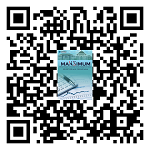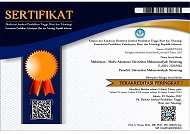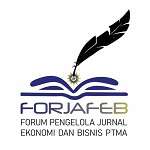Accounting, Animals, and Planet: Rearranging Ethical Responsbillities in the Business World
(1) Departement of Magister Accounting, University of Muhammadiyah Malang
(2) Departement of Magister Accounting, University of Muhammadiyah Malang
(3) Departement of Magister Accounting, University of Muhammadiyah Malang
(*) Corresponding Author
Abstract
This study explores how sustainability accounting and reporting systems can be restructured to include non-human subjects, particularly animals, by integrating ethical responsibility, interspecies justice theory, and critical accounting. Using a qualitative approach through in-depth interviews, it examines the ethical dimensions of swallow nest cultivation in Buntok City, Central Kalimantan, where animals are directly involved in business practices. Thematic analysis reveals ethically troubling practices, such as egg removal to increase nest value and habitat loss due to extractive industries. Although communities adapt by building artificial swallow houses and utilizing bird waste as fertilizer, these actions are largely profit-driven. Current accounting frameworks fail to recognize animals as moral or ecological stakeholders, reinforcing anthropocentric and capitalist logic. This research highlights the need for a more inclusive sustainability model that acknowledges animal welfare and ecological roles. It offers a local perspective to global sustainability discourse and calls for multispecies-inclusive reporting systems. The study concludes with policy recommendations to integrate animal welfare into sustainability standards and promote ethical aquaculture practices.
Keywords
Full Text:
PDFReferences
Adams, C. A. (2004). The ethical, social and environmental reporting-performance portrayal gap. In Accounting, Auditing & Accountability Journal (Vol. 17, Issue 5, pp. 731–757). Https://doi.org/10.1108/09513570410567791
Aisyah Noor, I. (2023). Peran Keanekaragaman Hayati Di Indonesia Dalam Mengatasi Perubahan Iklim Global.
Braun, V., & Clarke, V. (2006). Using thematic analysis in psychology.
Broadbent, J., & Laughlin, R. (2009). Performance management systems: A conceptual model. Management Accounting Research, 20(4), 283–295. Https://doi.org/10.1016/j.mar.2009.07.004
Cooper, B. (2015). THE DISABLED GOD.
Cuckston, T. (2018). Making Accounting for Biodiversity Research a Force for Conservation. Social and Environmental Accountability Journal, 38(3), 218–226. Https://doi.org/10.1080/0969160X.2018.1516559
Elkington, J. (1997). Thethree Bottom Line (Vol. 1).
Gray, R. (2010). A reevaluation of social, environmental and sustainability accounting: An exploration of an emerging transdisciplinary field? Sustainability Accounting, Management and Policy Journal, 1(1), 11–32. Https://doi.org/10.1108/20408021011059205
Maroun, W., & Atkins, J. (2018). The emancipatory potential of extinction accounting: Exploring current practice in integrated reports. Accounting Forum, 42(1), 102–118. Https://doi.org/10.1016/j.accfor.2017.12.001
Milne, M. J., & Gray, R. (2013). W(h)ither Ecology? The Triple Bottom Line, the Global Reporting Initiative, and Corporate Sustainability Reporting. Journal of Business Ethics, 118(1), 13–29. Https://doi.org/10.1007/s10551-012-1543-8
Nussbaum, M. C. (2006). The Moral Status of Animals.
Setiawan, A. (2022). Keanekaragaman Hayati Indonesia: Masalah dan Upaya Konservasinya. Indonesian Journal of Conservation, 11, No. 1.
Singer, P. (1975). Animal Liberation.
Tinker, T. (1991). THE ACCOUNTANT AS PARTISAN. In Accounting Organira#iom and Society (Vol. 16, Issue 3).
Vinnari, E., & Vinnari, M. (2022). Making the invisibles visible: Including animals in sustainability (and) accounting. Critical Perspectives on Accounting, 82. Https://doi.org/10.1016/j.cpa.2021.102324
Yovita, M., Pandin, R., Prisilia, S., Pribadi, A. F., Larissa, C., Akuntansi, P. S., Ekonomi, F., & Bisnis, D. (2023). Analysis of the implementation of the triple bottom line as the key to sustainability for food and beverage companies analisis penerapan triple bottom line sebagai kunci keberlanjutan bagi perusahaan food and beverage. Journal of Social and Economics Research, 5(2). Https://idm.or.id/JSER/index.
Article Metrics
Abstract view : 78 timesPDF - 0 times
DOI: https://doi.org/10.26714/mki.15.2.2025.284-297
Refbacks
- There are currently no refbacks.
-----------------------------------------------------------------------------------------------------------------------------------------------------------------------------------
 | MAKSIMUM: Media Akuntansi Universitas Muhammadiyah Semarang |
![]()
Maksimum: Media Akuntansi Universitas Muhammadiyah Semarang is licensed under a Creative Commons Attribution Attribution-NonCommercial-NoDerivatives 4.0 International License.

















